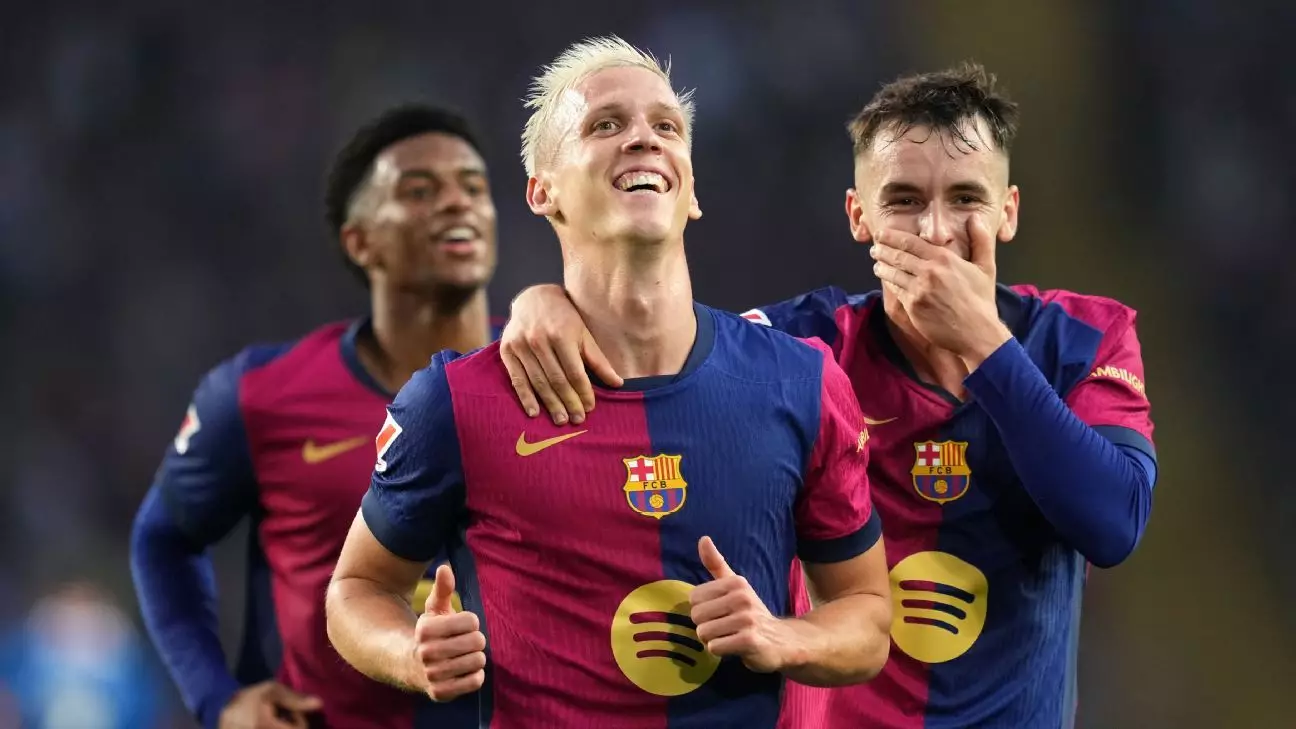In the realm of football, the financial landscape is continually shifting, and club management must strategically align with partners that can help anchor them in turbulent waters. FC Barcelona, a historic titan of LaLiga, recently took a significant step towards financial stability by renewing and expanding their long-standing partnership with Nike, the globally recognized sportswear giant. This multi-year agreement not only promises to boost Barcelona’s revenues but also reinforces the club’s brand identity in the competitive sports market.
As football clubs face escalating operational costs and inconsistent revenue streams, strategic partnerships have become vital in ensuring operational viability. Barcelona’s latest deal with Nike, which reportedly exceeds €100 million ($107 million) annually, represents an important move in a narrative of fiscal restoration. While the exact figures remain cloaked in confidentiality, the scale of this partnership indicates both parties have a mutual interest in elevating brand equity and operational capacity in the retail space.
Barcelona’s collaboration with Nike dates back to 1998, showcasing a two-decade journey characterized by ambition and marketing innovation. Under the latest agreement, this partnership not only solidifies Nike’s position as the club’s primary kit supplier but also expands their involvement in overarching retail strategies. As LaLiga clubs continue battling against financial regulation stipulated by the league, Barcelona’s fresh financial injection through this deal seems timely.
Currently, Barcelona’s financial constraints have placed them in a precarious situation, particularly with LaLiga’s spending cap set at €426 million. Reports indicate that Barcelona was exceeding this limit by approximately €60 million. The renewal with Nike acts as a financial reinforcer, providing the club with the resources necessary to bring their expenditures back in line and to position them for future player signings—an area they have struggled with recently due to financial restrictions.
The competitive landscape for kit deals in football is not only vast but also rife with lucrative agreements, making it a critical area for management consideration. For instance, Manchester United made headlines in 2023 with a groundbreaking £1 billion ($1.1 billion) contract with Adidas, setting a high bar in sponsorship deals. Similarly, Real Madrid has secured an annual revenue of around €120 million from its Adidas deal, affirming the financial clout such partnerships can wield.
In light of these figures, Barcelona’s deal with Nike seeks not simply to match but ideally to surpass existing agreements, positioning the club as a central player in the global market for sports merchandise. This financial lever becomes all the more essential as clubs adapt to the economic repercussions of the COVID-19 pandemic and the shifting dynamics of fan engagement.
Nonetheless, it is essential to weigh the effects of this financial maneuver not only on the ledger but also on the athletic performance of the team itself. Under the management of Hansi Flick, Barcelona has made a promising start in both LaLiga and the Champions League, boasting an impressive record early in the season. These positive results indirectly enhance the commercial potential of the club, drawing more attention to merchandising and ticket sales, thus maximizing the benefits of the new Nike partnership.
The correlation between successful on-field performance and commercial success cannot be overstated; as the club continues to accrue wins, fans are likely to increase their support, resulting in richer revenues across various streams. This symbiotic relationship between performance, financial health, and strategic partnerships should serve as a cornerstone for Barcelona in navigating their road ahead.
As FC Barcelona embarks on this renewed partnership with Nike, the promise of financial restoration comes hand-in-hand with the aspirations for competitive resurgence. The ability to leverage brand power and collaboration will shape the club’s trajectory in a highly competitive environment. This partnership is not merely about kits; it represents a strategic alliance that could pose significant implications for Barcelona’s future, both on and off the pitch. With a foundation of historical collaboration and a fresh financial approach, Barcelona has positioned itself to reclaim its status as a powerhouse in global football.

